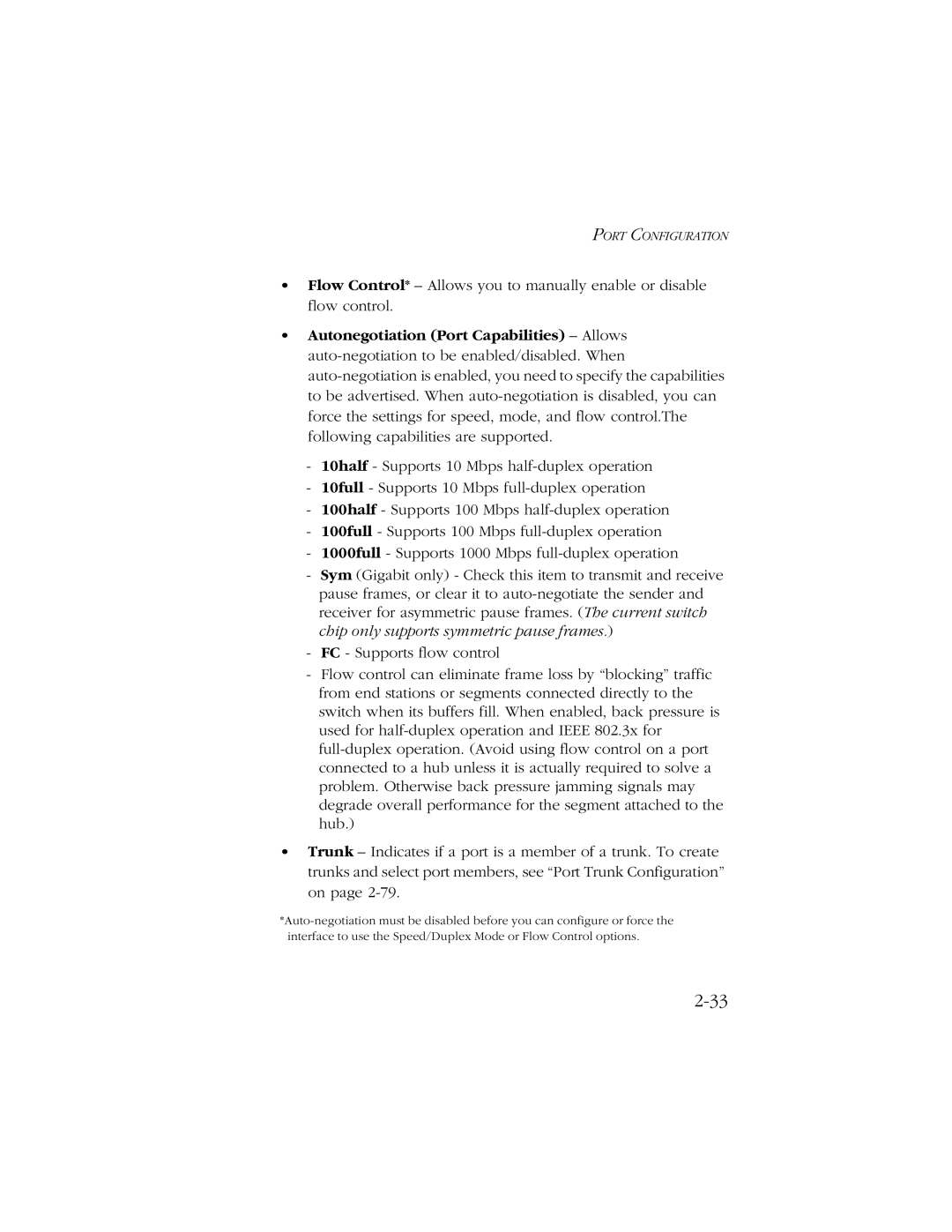PORT CONFIGURATION
•Flow Control* – Allows you to manually enable or disable flow control.
•Autonegotiation (Port Capabilities) – Allows auto-negotiation to be enabled/disabled. When auto-negotiation is enabled, you need to specify the capabilities to be advertised. When auto-negotiation is disabled, you can force the settings for speed, mode, and flow control.The following capabilities are supported.
-10half - Supports 10 Mbps half-duplex operation
-10full - Supports 10 Mbps full-duplex operation
-100half - Supports 100 Mbps half-duplex operation
-100full - Supports 100 Mbps full-duplex operation
-1000full - Supports 1000 Mbps full-duplex operation
-Sym (Gigabit only) - Check this item to transmit and receive pause frames, or clear it to auto-negotiate the sender and receiver for asymmetric pause frames. (The current switch chip only supports symmetric pause frames.)
-FC - Supports flow control
-Flow control can eliminate frame loss by “blocking” traffic from end stations or segments connected directly to the switch when its buffers fill. When enabled, back pressure is used for half-duplex operation and IEEE 802.3x for full-duplex operation. (Avoid using flow control on a port connected to a hub unless it is actually required to solve a problem. Otherwise back pressure jamming signals may degrade overall performance for the segment attached to the hub.)
•Trunk – Indicates if a port is a member of a trunk. To create trunks and select port members, see “Port Trunk Configuration” on page 2-79.
*Auto-negotiation must be disabled before you can configure or force the interface to use the Speed/Duplex Mode or Flow Control options.
